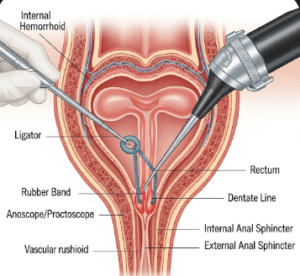Overview
Urinary Tract Infections (UTIs) are among the most common bacterial infections, affecting millions of people worldwide each year. They occur when bacteria enter the urinary tract, leading to inflammation and irritation. UTIs can affect any part of the urinary system, including the bladder, urethra, ureters, and kidneys. Prompt treatment is important to prevent complications such as kidney infections and recurrent infections.
What is Urinary Tract Infections
Urinary Tract Infections (UTIs) are infections that occur anywhere in the urinary system, including the urethra (urethritis), bladder (cystitis), ureters, and kidneys (pyelonephritis). Most UTIs are caused by bacteria, particularly Escherichia coli (E. coli), which normally live in the digestive tract but can enter the urinary tract. Women are more likely to develop UTIs due to their shorter urethra, but the condition affects men, children, and older adults as well.
Symptoms
Lower UTI (bladder and urethra):
- Burning sensation during urination (dysuria)
- Frequent urge to urinate
- Passing small amounts of urine frequently
- Cloudy, dark, or strong-smelling urine
- Pelvic discomfort or pressure
- Blood in the urine (hematuria)
Upper UTI (kidneys):
- Fever and chills
- Flank or back pain
- Nausea and vomiting
- Fatigue or general malaise
Causes
UTIs occur when bacteria enter the urinary tract and begin to multiply. Common causes include:
- Bacterial contamination from the anus to the urethra
- Poor personal hygiene
- Sexual activity, especially in women
- Catheter use or urinary procedures
- Incomplete bladder emptying
- Urinary tract obstructions (e.g., stones or enlarged prostate)
- Weakened immune system
Risk Factors
- Female gender (due to shorter urethra)
- Sexual activity
- Pregnancy
- Postmenopausal changes
- Use of urinary catheters
- Urinary tract abnormalities or blockages
- History of previous UTIs
- Diabetes or immunosuppression
- Older age
Complications
If not treated promptly, UTIs can lead to:
- Recurrent infections
- Kidney infection (pyelonephritis)
- Kidney damage or scarring
- Sepsis (if infection spreads to the bloodstream)
- Urethral narrowing in men
- Preterm labor in pregnant women
Prevention
- Drink plenty of fluids, especially water
- Urinate frequently and don’t delay when you feel the urge
- Wipe front to back after using the toilet (especially for women)
- Urinate after sexual intercourse
- Avoid irritants like douches, powders, and scented soaps
- Maintain good hygiene
- Wear breathable, cotton underwear
- Avoid tight-fitting pants
Treatment Options in Korea
South Korea provides high-quality, evidence-based care for UTIs, combining modern diagnostics and effective therapies:
- Diagnosis:
- Urinalysis and urine culture to detect bacteria and guide treatment
- Ultrasound or CT scan if kidney infection or structural issues are suspected
- Cystoscopy for recurrent or complicated UTIs
- Treatment:
- Antibiotics: tailored to the specific bacteria
- Short course for simple UTIs
- Longer or IV antibiotics for kidney infections or complicated cases
- Pain relievers (e.g., phenazopyridine) to reduce discomfort
- Hydration therapy to flush out bacteria
- Antibiotics: tailored to the specific bacteria
- Management of recurrent UTIs:
- Low-dose prophylactic antibiotics
- Vaginal estrogen cream for postmenopausal women
- Lifestyle counseling and bladder retraining
Korea’s hospitals offer comprehensive urology and nephrology care, with rapid diagnostic testing, personalized antibiotic therapy, and long-term follow-up for recurrent or complex cases.













